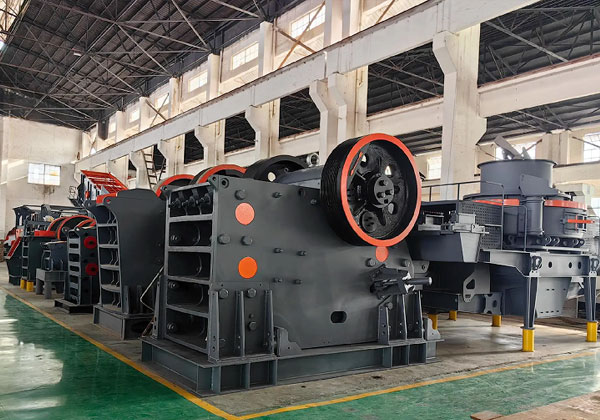Cost of various types of stone crushers
Stone crushers play a vital role in the construction, mining, and aggregate industries by breaking down large rocks into smaller, usable sizes. With different types of stone crushers available in the market, understanding their costs and what influences those costs is important for buyers to make informed decisions.

1. Jaw Crusher
Description:
Jaw crushers are one of the most common types of stone crushers. They use compressive force to break down large rocks into smaller pieces. Typically used as primary crushers, jaw crushers are suitable for hard and abrasive stones like granite, basalt, and river stones.
Cost Range:
-
Small-scale jaw crushers suitable for laboratory or small projects can cost around $5,000 to $15,000.
-
Medium to large industrial jaw crushers typically range between $30,000 and $150,000, depending on capacity and brand.
Factors Affecting Cost:
-
Capacity (tons per hour)
-
Jaw size and opening
-
Automation and control systems
2. Cone Crusher
Description:
Cone crushers use a rotating cone inside a fixed outer shell to crush stones by compressive force. They are generally used as secondary or tertiary crushers to produce finer aggregates. Suitable for crushing medium to hard stones like granite, basalt, and quartz.
Cost Range:
-
Small cone crushers: around $20,000 to $50,000
-
Large-scale, high-capacity cone crushers can cost $100,000 to $500,000 or more.
Factors Affecting Cost:
-
Crushing chamber size
-
Motor power
-
Brand and manufacturing technology
3. Impact Crusher
Description:
Impact crushers use impact force to break stones by striking the material with hammers or blow bars attached to a rotor. They are used mainly for soft to medium-hard rocks and for producing sand and gravel.
Cost Range:
-
Smaller mobile impact crushers start around $30,000 to $70,000.
-
Larger stationary impact crushers can cost $100,000 to $300,000 or more.
Factors Affecting Cost:
-
Rotor size and speed
-
Capacity
-
Mobility (stationary vs. mobile)
4. Mobile Crushers
Description:
Mobile crushers are portable crushing units that can be moved to different sites. They combine different crusher types like jaw, cone, and impact crushers on one chassis. These are highly preferred for flexibility and ease of setup.
Cost Range:
-
Small mobile crushers start at $50,000 and can go up to $500,000+ for heavy-duty models.
Factors Affecting Cost:
-
Mobility features
-
Crushing technology (jaw, cone, impact)
-
Automation and remote control systems
Factors Affecting Stone Crusher Costs
-
Capacity & Size: Larger crushers with higher throughput cost more.
-
Transportation: Depending on the location, transporting large crushers can be costly.
-
Brand & Quality: Established brands often command premium pricing due to reliability.
-
Automation & Features: Advanced control systems increase cost but improve efficiency.
-
Installation & Maintenance: Costs include setup, spare parts, and ongoing maintenance.
The cost of stone crushers varies widely based on type, capacity, and features. Small projects can often work with jaw or hammer crushers in the $5,000–$30,000 range, while large-scale industrial operations may invest hundreds of thousands of dollars in advanced cone or impact crushers. Mobile crushers offer flexibility at a premium cost.
When choosing a crusher, it’s important to consider not just the upfront purchase price but also operating efficiency, maintenance, and suitability for the specific materials and output requirements.
